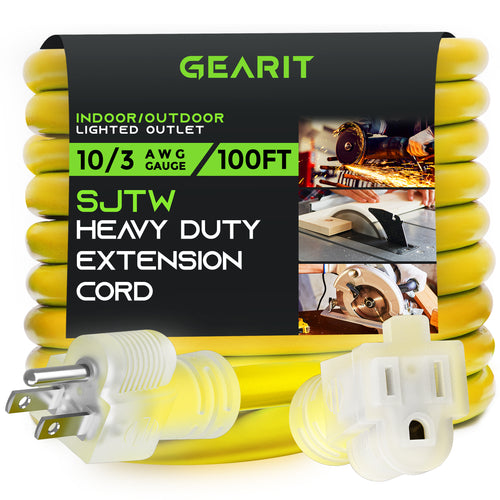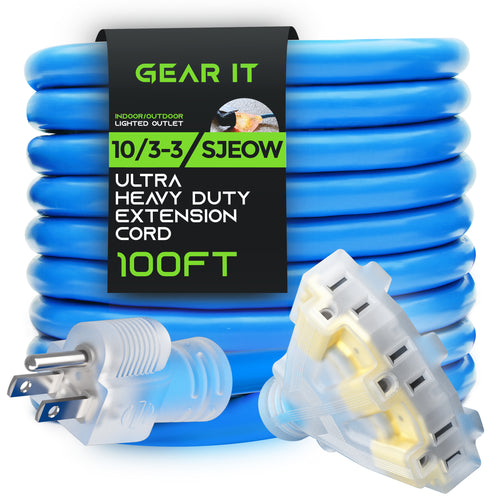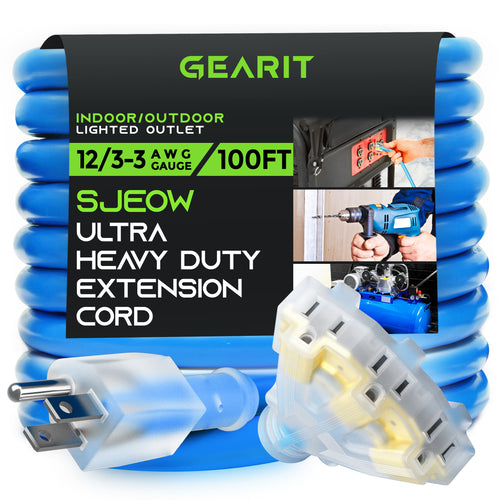
Almost every household owns one of these essentials - the extension cord. They make dealing with electricity much easier, ensuring your laptop stays powered even when working in the farthest corner of the room. These tools also let you connect multiple appliances using just one outlet, temporarily solving power socket shortage issues and boosting productivity. However, using extension cords incorrectly can lead to electric fire hazards or shocks. Let’s explore some common mistakes and how to avoid them:
1. Buying the Wrong Extension Cords
► Not all extension cords are created equal. When purchasing one, consider your current needs and the cord’s features. A mismatch may cause failures during power surges, rendering it useless.
► Substandard electrical cords can lead to fire accidents when connecting power equipment. Opt for heavy-duty extension cords with thick wires that allow more electric current to flow without overheating. Look for cords that can accommodate multiple appliances simultaneously.
► Check the cord’s capacity, which is usually labeled by the manufacturer. For example, an 800-watt cord can support 120V power up to 6.6 amps. Make sure it aligns with the devices you plan to connect.
2. Extension Cord Certification
► Authentic extension cords follow safety standards for manufacturing electric equipment. Look for cords with CE, UL, or CSA logos, indicating they meet safety requirements.
electric equipment. Look for cords with CE, UL, or CSA logos, indicating they meet safety requirements.
► Certified cords have quality components and designs that pass quality control checks, ensuring safety during use.
3. Intended Use Matters
► Consider where you’ll use the extension cord. Outdoor cords have weather-proof features to withstand elements, heavy jacketing, and backing. They’re ideal for backyard garages or external party hosting.
► Indoor cords lack these features and are meant for indoor use. Using an indoor cord outdoors can create an electric fire hazard.
4. Don’t Overload
► Avoid plugging too many devices into a single extension cord - including other extension cords. Overloading can cause overheating and fire hazards.
► If you need to connect multiple devices, use a heavy-duty cord with a higher amperage rating.
5. Avoid Running Cords Under Carpets
► Running extension cords under carpets can lead to overheating and fire hazards. Instead, use cord protectors to cover cords that must cross walkways.
6. Inspect Shielding
► Always inspect the shielding of an extension cord before use. Look for any signs of damage or wear.
► Damaged shielding can expose wires and increase the risk of electric shock or fire.
7. Secure Placement
► Place extension cords away from high-traffic areas where they won’t be stepped on or tripped over.
► Use cord organizers or clips to secure cords against walls or furniture.
8. Unplug When Not in Use
► When appliances are not in use, unplug them from the extension cord. Leaving them plugged in can lead to unnecessary energy consumption and potential hazards.
Ensuring proper extension cord usage is crucial for your safety and the durability of your electrical appliances. Remember to select the appropriate cords, conduct regular inspections, and adhere to safety protocols to avoid accidents. And don't forget to check out GearIT for a wide selection of reliable extension cords and other electrical accessories!





















































